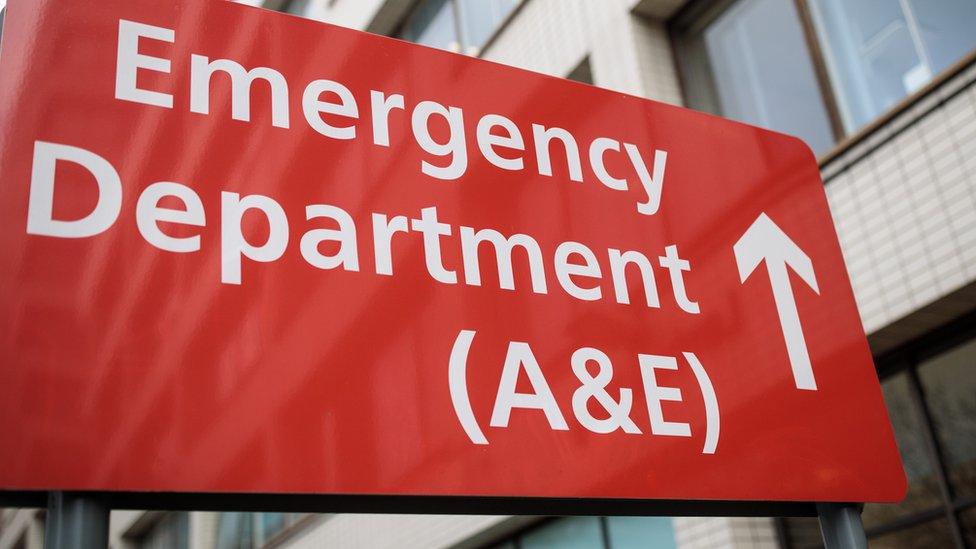NHS staff having to say sorry for failed system, says Scottish doctor
- Published
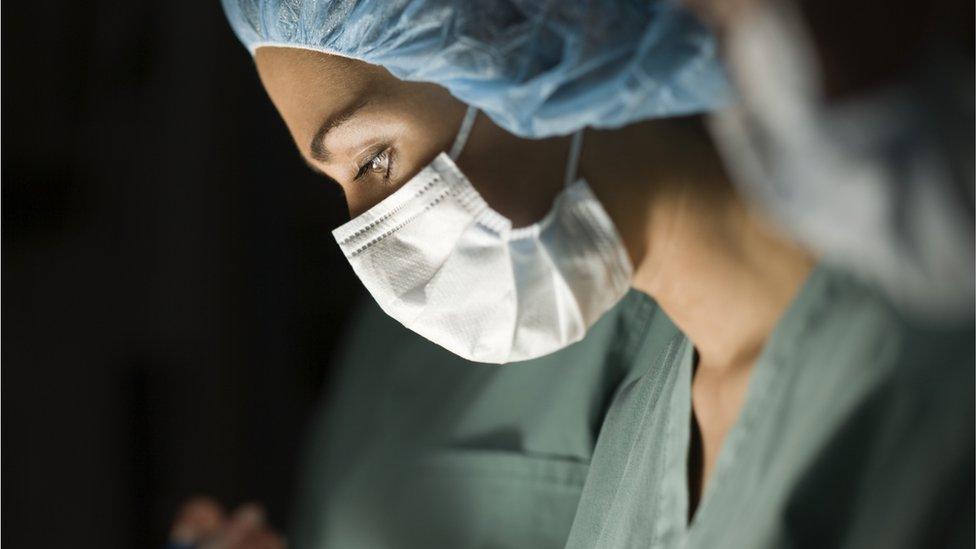
NHS staff are increasingly having to apologise for "system-wide failings" which are letting patients down, a leading doctor claims.
The outgoing chairman of BMA Scotland, Dr Lewis Morrison, will highlight the burden on health care staff during his farewell address later.
He will urge ministers to "stop asking doctors to say sorry and give them the tools to make things better".
The Scottish government said it was spending £1bn on its NHS Recovery Plan.
Dr Morrison will tell the UK's BMA conference: "Many of us have found ourselves saying sorry to patients and families a lot recently; most of the time we are being apologists for thing that are simply not our fault.
"That doesn't make it any less tough to be the messengers who bear the brunt for the myriad of things going wrong across the whole health system.
"And it's not just us - I know nurses, GP receptionists and all of us working in health care are in the firing line."
He will say that resources and staffing were stretched thin even before the pandemic and "it is nothing short of a miracle we have somehow endured".
And he will warn that the effects of the pandemic on the physical and mental health of his colleagues has left many considering their future in the profession.
"The pain of working in, and apologising for, a system that is simply letting patients down at all stages is hard to over-estimate," he added.
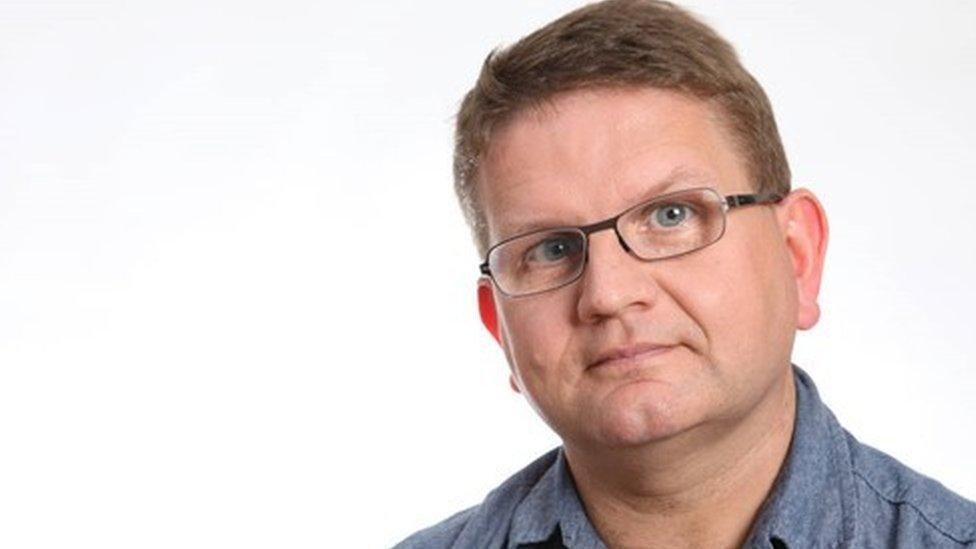
Dr Lewis Morrison will make his farewell speech to the BMA UK conference later
Dr Morrison's comments come the day after the publication a series of statistical publications highlighting the challenges facing the NHS in Scotland post-pandemic.
They revealed that almost 900 people waited more than 62 days for their first cancer treatment in the first three months of 2022.
In the week ending 19 June, 2,262 patients spent more than eight hours in A&E, external before being admitted, transferred or discharged.
And there was a 51% year-on-year increase in the daily number of beds occupied by people medically ready to go home, external. Many cannot be discharged because there is nowhere suitable for them in the community.
Dr Morrison will go on to suggest how Scottish ministers can tackle the issues in the health service.
"We need more honesty and frankly an explanation from Scottish government on how they allowed the NHS to come into a pandemic so grossly understaffed and under-resourced," he will say.
"Why is it doctors and NHS staff who are constantly having to explain and apologise to the thousands who will wait months or years for their tests or to be seen - while politicians continue to bang on about ridiculous targets and timescales for treatment, which we all know are unachievable?
"The pandemic did not cause these problems whatever they might say; it simply exposed the truth and the extent of them. Some honesty about that would go a long way. It would also help us really start to get to grips with solutions."
'Record high'
Health Secretary Humza Yousaf praised the efforts of NHS staff since the start of the pandemic and said the crisis had put the service under the most severe pressure in its 73-year history.
He added £12m had been made available to support the mental health and wellbeing of the workforce in 2021/22.
Mr Yousaf said: "NHS Scotland staffing is at a record high level following 10 consecutive years of growth, with overall staffing up by over 23% since 2006.
"We're determined to go further and we are working with boards to enhance NHS workforce levels, fill posts and create new roles, backed by our £1bn NHS Recovery Plan which introduced a range of direct workforce investments and new measures to support health boards' capacity for both domestic and international recruitment."
Related topics
- Published28 June 2022
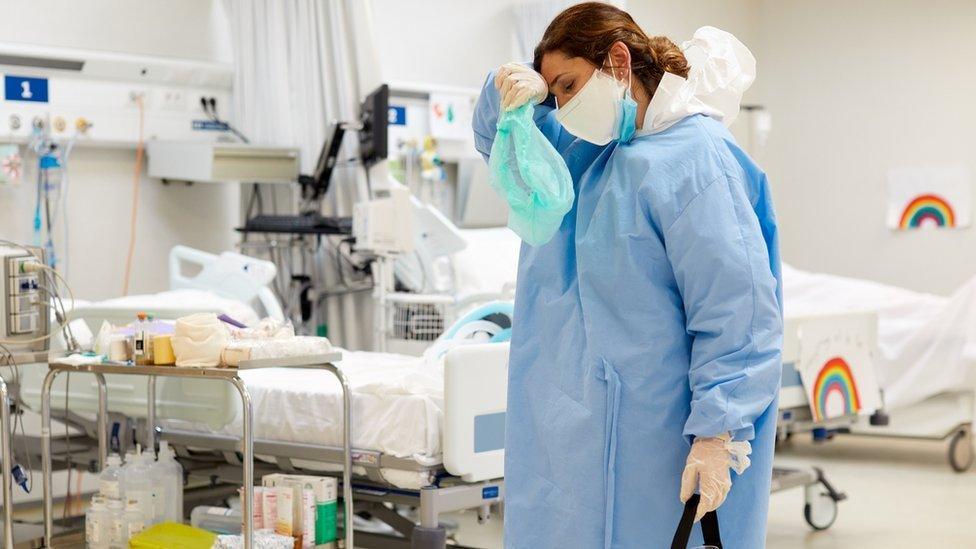
- Published20 June 2022
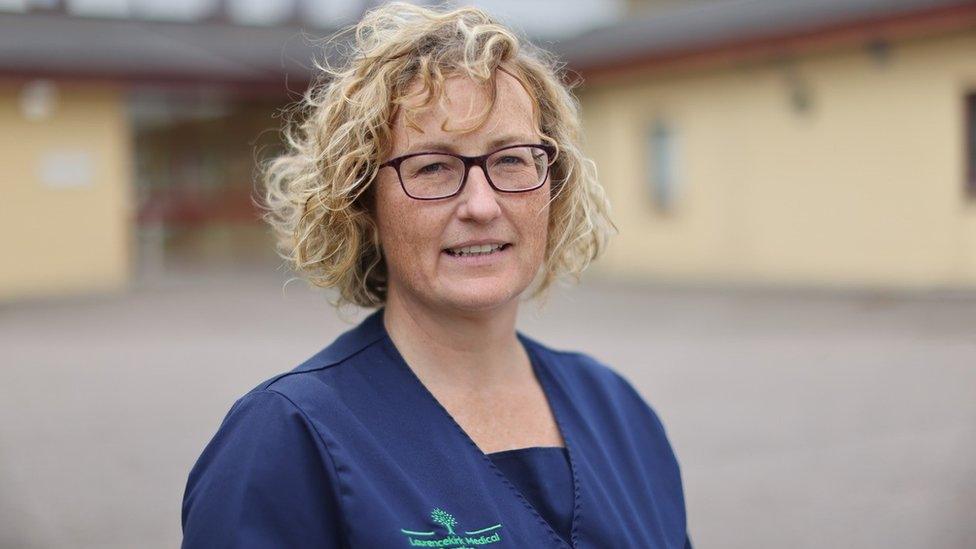
- Published19 April 2022
